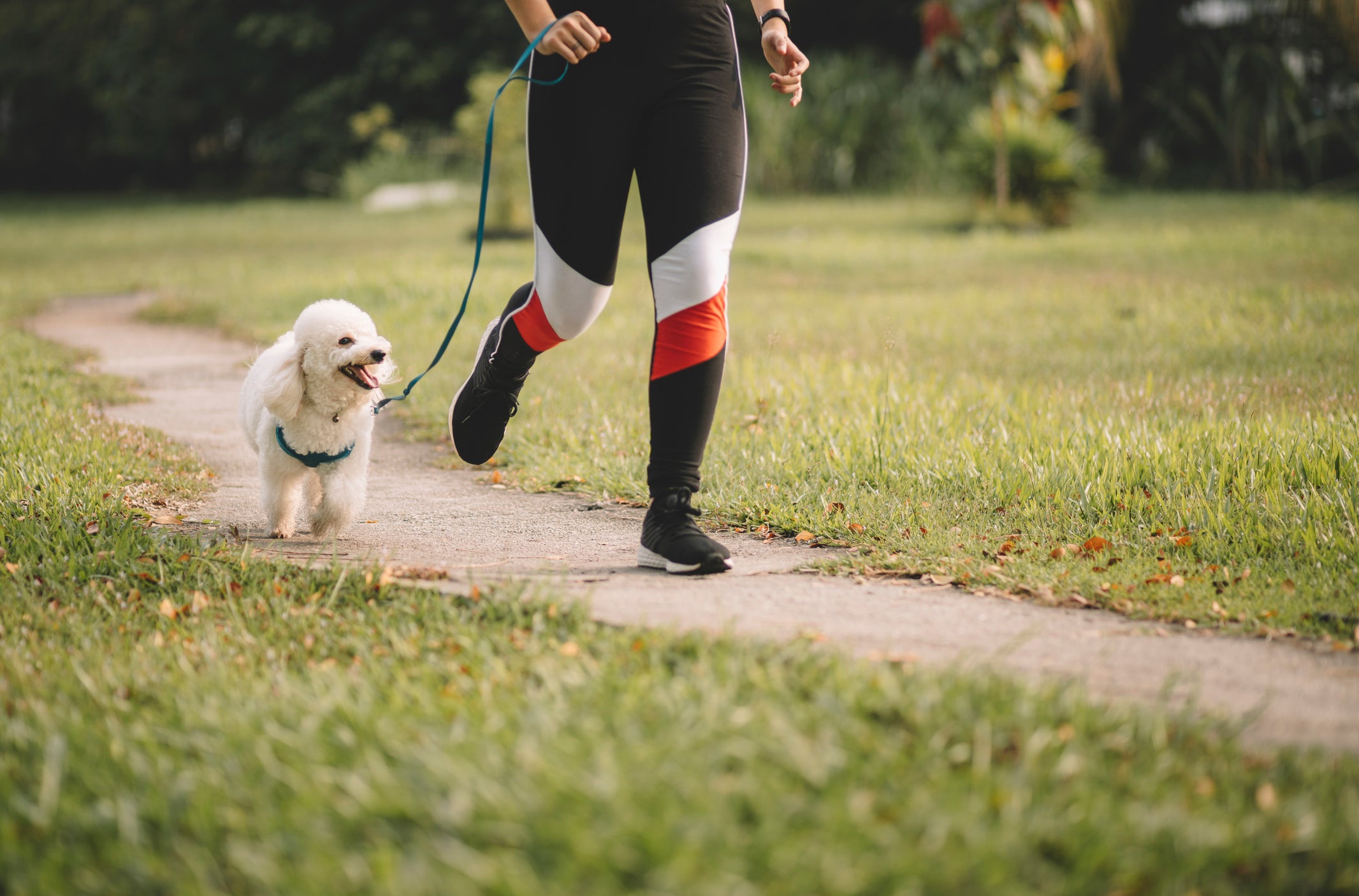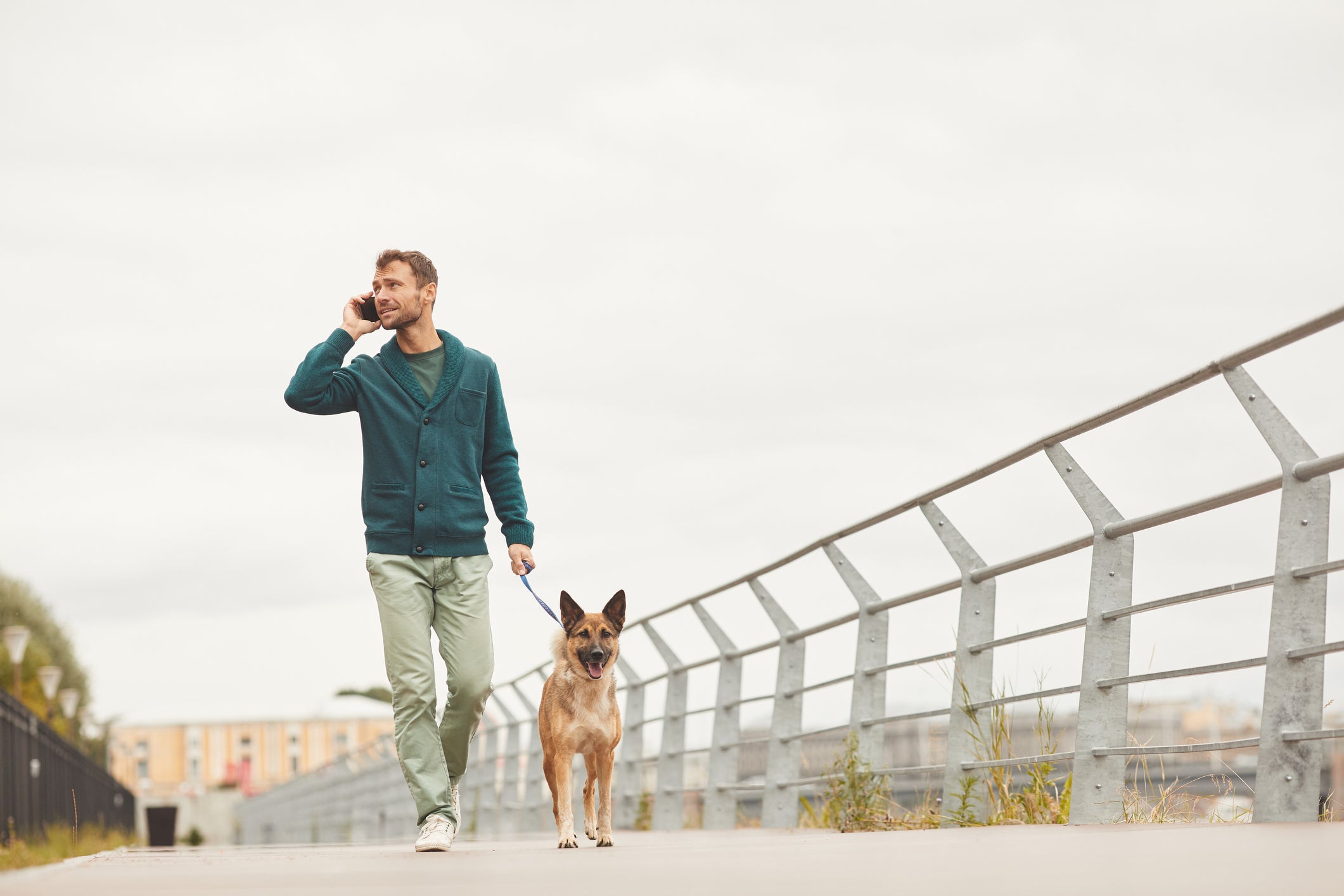Could compulsory pet licences help in the battle against dog theft?
Criminal gangs have stalked our furry friends in greater numbers since the Covid outbreak as more of us rely on ‘pandemic pups’. Marie Carter Robb looks for a solution to the rise in dognapping

Our furry friends have been hugely important during the last terrible year; they have a comforting cuddle and, perhaps most importantly, they have been our excuse to step over the threshold of our front doors for daily exercise. Even those formerly dog-less have, rightly or wrongly, acquired so-called “pandemic pups” and prices have risen as a result of the spike in demand. Incredibly, more than 3 million UK households have purchased a pet during the pandemic, according to a report by the Pet Food Manufacturers’ Association (PFMA).
For all sorts of reasons, including the price hike, criminal gangs have stalked our dogs in ever greater numbers. DogLost, a UK organisation that helps victims of dog theft, has recorded a 170 per cent increase in the crime, from 172 dogs in 2019 to 465 dogs in 2020.
Simon Powell from Animal Search UK, explains what’s caused the surge in pet thefts: “Demand has skyrocketed because of lockdown, where people now have more time to spend with their new pets and train them. But with that there come certain problems – whether it’s an organised gang or loner with the opportunity to get quick money, by simply stealing a dog and breeding. When you breed a dog, it can potentially have a litter of six to eight puppies, the base price of puppies has gone up at least 50 per cent. For example, dachshund and Labrador puppies 12 months ago were priced between £800 and £1,000; today it’s around £3,000. That means the earning potential from one litter of six to eight puppies could be anywhere between £15,000 and £20,000.
“Some even steal the dog with the intention to bring the dog back in return for a cash reward, as usually the owners are so upset and relieved to have their pet back, they hand them the money, and the police don’t usually get involved. Therefore, there is no proof.”
So, what’s to be done?
There have been numerous demands for home secretary Priti Patel to clamp down on dog theft by making it a specific crime, but so far, she has failed to take action. At a local level, Nottinghamshire Police is the first force to be proactive and appoint a specialist officer to focus on the crime. Police and animal charities and organisations are calling on the government to vastly increase the penalties, including fines and, in some cases, imprisonment. Organisations such as the RSPCA are not only calling for tougher penalties but for the reintroduction of compulsory dog licences.
Read More:
A spokesperson for the RSPCA explained: “The RSPCA maintains its view that the reintroduction of a dog licensing scheme would be beneficial to managing the social and animal problems associated with dog ownership.”
The spokesperson added: “It is currently an animal’s monetary or sale value which is taken into account when determining the sentence for pet theft, however, we really want to see this changed, so that the animal’s intrinsic value to their owner is considered. This would raise the category of the offence so that there is greater certainty of prosecution and this in turn should help deter the crime.”
Steps to follow if your dog has been stolen:
· Firstly, check the local area and your dog’s favourite spots in case the dog has wandered off
· Engage the local community and make your dog ‘too hot to handle’ by sharing with local groups, putting up posters, informing local media and using social media – include pictures and any distinctive marks
· There are some specific sites set up to help find lost and stolen dogs, like doglost.co.uk
· Report your dog as stolen to the police and provide them with as much detail as possible
· Report your dog as stolen to local pet related services like vets, animal shelters, pet shops, dog wardens and the council. Provide photos, a physical description and the dogs microchip number
· Report your dog to the microchip database and make sure your contact details are up to date
Dr Daniel Allen, founder of the #PetTheftReform campaign who took a petition calling for tougher sentencing to parliament, is already working on the next steps in his campaign: “The rise in dog thefts is driven by organised crime. We need Pet Theft Reform to give courts access to appropriate custodial sentences to act as a deterrent, provide punishment, and protect the public. The Stolen and Missing Pets Alliance (Sampa) will continue raising public awareness and lobbying the government until Pet Theft Reform is implemented.”
A Kennel Club spokesperson added: “We have always been in favour of tougher sentencing and stronger penalties for pet theft and have urged the government to make pet theft a specific offence, so that it recognises the theft of a dog, or any pet for that matter, has impacts that far exceed any associated financial loss.”
Dog licences?
The RSPCA has reinvigorated its campaign to introduce compulsory dog licences, which were scrapped in 1987.
The spokesperson said: “Compulsory dog licences have the potential to generate money that could be used to help improve dog welfare and tackle the issues around dog ownership. These include anti-social behaviour involving dogs, dog bite incidents and stray dogs and could also include pet theft.
“Dog licensing, like microchipping, would also make it easier to reunite a dog with their owner should they become lost or stolen. However, much like with microchipping it is reliant on the owner keeping their details up to date.”
However, Dog Lost, a free national database of missing dogs, counters that dog licences would be “impossible” to enforce and instead suggests an overhaul of the current microchipping system to state it proves ownership.

Jane Frankland explains: “Pet ownership has increased 20 per cent since 1988 [after licences were scrapped], so if there was an enforcement problem then it would be even harder now.
“As a comparison, my sister has lived in New Zealand for the past 30 years where they have had dog licenses. Many dog owners do not bother to buy one and are only caught out if the dog escapes and is picked up and she says it does not in any way prevent dog theft.
“The present system of microchips was introduced in April 2016, but it still does not prove ownership and has not prevented dog theft. What is needed is a current shake-up on the microchipping law to state it proves ownership. To have just one body to oversee and bring together all the 15 approved microchip databases so they share details and easier to locate owners. Look at a microchip like a car insurance – everything held is regulated by the DVLA but it’s for all the many different insurances held.”
However, the RSPCA states that dog licences are now necessary because of the very fact that microchipping has not had a universal take up. In addition, revenue generated from compulsory dog licences could help fund dog welfare initiatives.
A spokesperson said: “A dog licensing scheme has the potential to generate money that could be used to help improve dog welfare and tackle the issues around irresponsible dog ownership.”
Read More:
The RSPCA cites the Responsible Pet Ownership Bylaw in Calgary, Canada, which requires all cats and dogs to be licensed with the revenue generated being used to deliver programmes and services including dog safety, public awareness and education.
As a starting point, many are calling on the home secretary to adopt tougher sentences for dog theft – a dog should not be classed as property – and also give police more powers to enforce such laws. Dog Lost says that all dogs should also be legally chipped and puppies should be chipped by the breeder at the correct age before being sold on.
After that, perhaps Priti Patel should finally look at whether a reintroduction of dog licences could help not only trace lost pets but also generate much-needed funds to protect our nation’s canines. Time for action now, not later.
Would you support the re-introduction of compulsory dog licences?
Marie Carter-Robb is the editor of Pets Magazine (www.petsmag.co.uk), a unique leading lifestyle magazine for pet owners. Follow Pets Magazine on Twitter and Facebook
Join our commenting forum
Join thought-provoking conversations, follow other Independent readers and see their replies
Comments
Bookmark popover
Removed from bookmarks